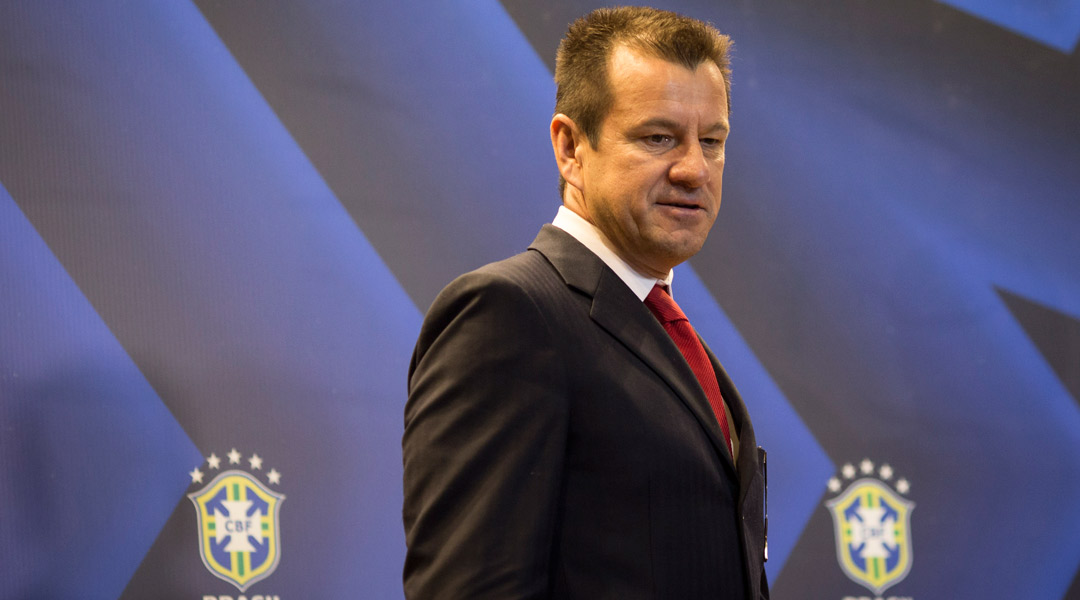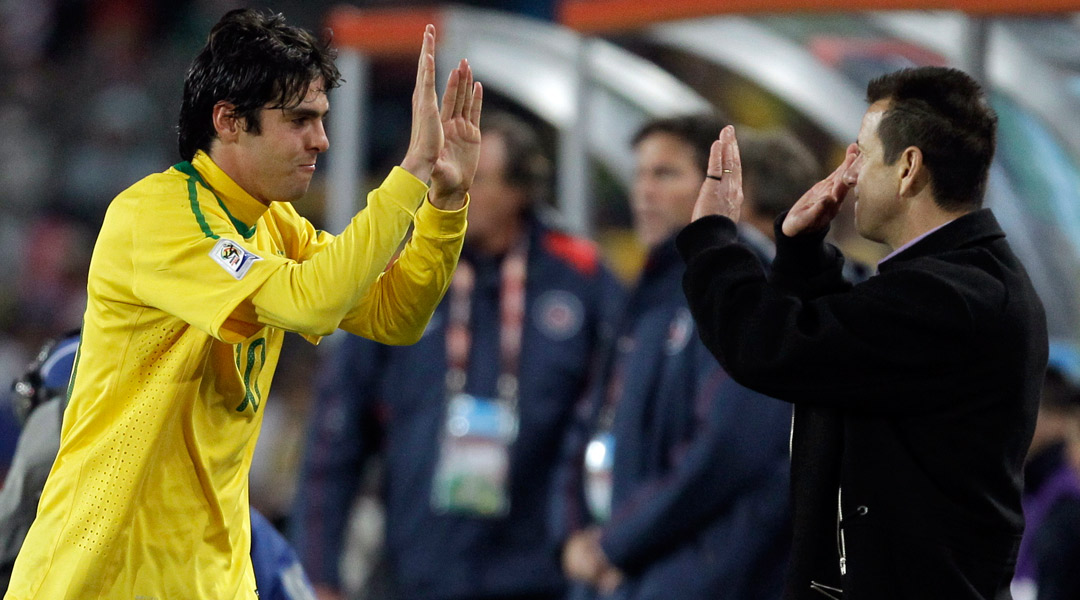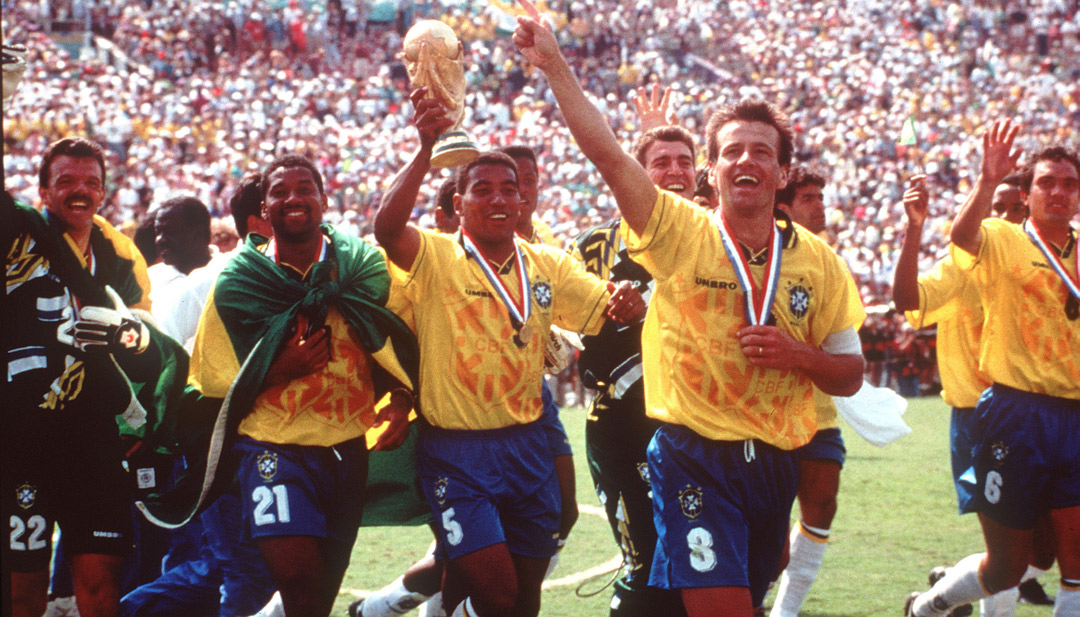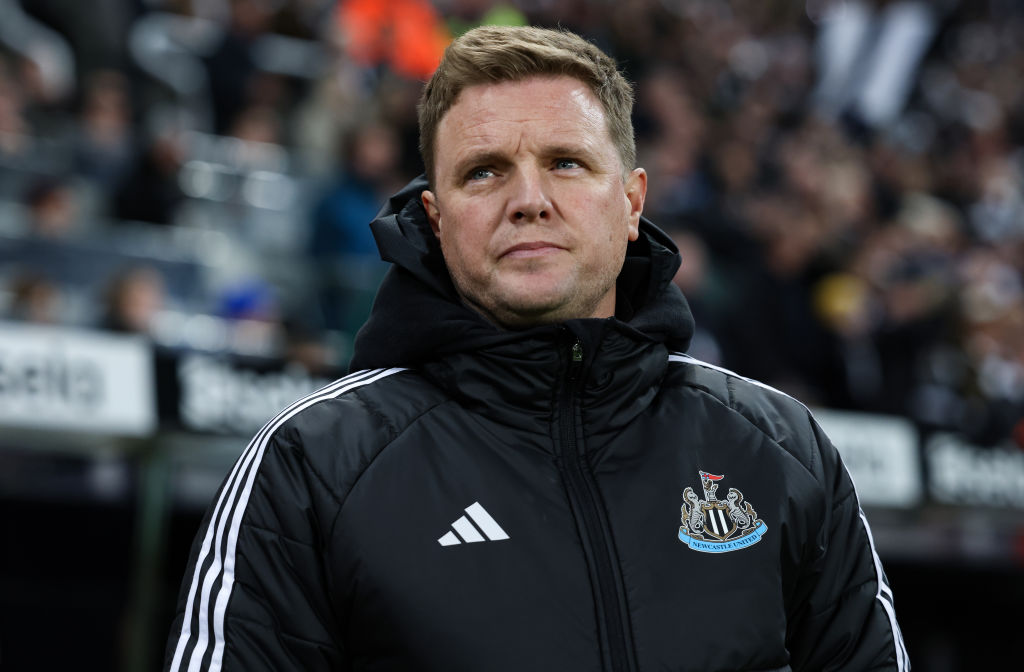Dunga returns to prove why Brazil really are backwards
Dunga is back in the Brazil hotseat but few are happy about it, as FFT's Brazilian correspondent Mauricio Savarese discusses...

When polls were conducted to speculate who would be Luiz Felipe Scolari’s successor as Brazil's new coach, Dunga wasn’t even on the list. Until last week, even the man himself thought it would be easier working in Italy than for the Seleção team he left in defeat in 2010.
Brazil were so outclassed by Germany in the World Cup they hosted that a reshuffle seemed inevitable. Buzz words were “talent,” “soul searching” and “rejuvenate”. Well, not for the elderly men at the Brazilian FA.
In a surprising move, Dunga is back to show that Brazilian officials don’t dream of 1970, as pundits say. Instead they dream of 1994, the year in which he lifted the World Cup that gave the Seleção a 24-year predicament: do efficiency, discipline, effort and teamwork matter more than anything else?
None of these actually compensate for the frustration of those who want to see a more talented and less fouling Brazil in Russia 2018. No Brazilians actually think Dunga will aim at that, regardless of what he says. Scolari at least had the pressure of winning at home for the first time to justify their lack of interest for beautiful football. But now the opportunity is lost. The new coach pledges to do exactly what he did between 2006 and 2010. The same as before.
Get FourFourTwo Newsletter
The best features, fun and footballing quizzes, straight to your inbox every week.
SEE ALSO Year Zero: Brazil may want to copy trendy European models, but they can't afford to
Truth be told, the alternatives weren’t much different: coaches Tite and Muricy Ramalho, the favourites of the Brazilian public, were never famous for jogo bonito. They assemble tactically aware sides that win trophies. But these two have huge coaching experience, something that 50-year-old Dunga clearly lacks. After leaving the Brazil job in 2010, he took time off to take care of his family and spent nine unimpressive months at Internacional in 2013. Still, he is back.
"A 7-1 defeat, marketing wise"
To 1970 World Cup-winning captain Carlos Alberto, “it is as if Brazil had no new coaches at all. It is always in the same group: Carlos Alberto Parreira, Scolari, Dunga or someone close to them,” he says. “Dunga can surely do well. He wasn’t bad in the first time; he won the Copa America and a Confederations Cup in convincing fashion. But he hasn’t worked much after South Africa and we have others who were ahead. It was time for a new generation, to be back in style.”
Brazilian media are disappointed too. “It is difficult to find a name less connected to what Brazil fans want,” Eduardo Tironi, ESPN’s executive-editor and Lance columnist, summarised. “Brazil wants Brazilian football back in the way it became famous, and not with the warrior spirit that might bring trophies with a bigger taste of relief than of pleasure. Fans wanted jogo bonito. The Brazil FA responded with the winning-at-all-costs man. A 7-1 defeat, marketing wise.”

Dunga’s appointment is also surprising because he bears part of the responsibility for Brazil’s downfall at home. Only five of the 23 players chosen by Scolari were at the 2010 World Cup. The new coach cared so much about knitting a tight group then that he didn’t take Neymar, who was clearly as promising a 17-year-old as young as Ronaldo in 1994. He is the first World Cup-losing coach to be reappointed since Telê Santana, who was in charge of the 1982 samba masters.
Tite, Brazil’s favourite according to a Datafolha poll, took a boring Corinthians team to three big titles in three years: the Brazilian championship, Libertadores Cup and the Club World Cup in 2012. After a troubled 2013, he quit so he could be free for Brazil when they needed him. The Brazil FA didn’t even consider him. Ramalho, meanwhile, won four Brazilian championships, the last in 2010, and one Libertadores Cup with Neymar’s Santos. He was ditched because he said no years ago.
Dunga vision
So what to expect from Brazil’s new coach? Since there isn’t much to consider in his coaching career, a look at his days as an active footballer gives some hints.
In the most important moment of his career, Brazil captain Dunga really had something to let out. He had spent four years being called names for the new jogo feio style that took the Seleção to defeat in Italy 1990. It was “Dunga Age” football, they said. But that penalty shootout victory in the United States in 1994, giving the Seleção their first World Cup title in 24 years, was supposed to change everything – although the display wasn’t better than four years earlier.
As U.S. vice-president Al Gore handed him the trophy in a packed Rose Bowl stadium with billions of people watching at home, an enraged Carlos Caetano Bledorn Verri shouted repeatedly to the cameras a few words that only Brazilians understood. “Take a picture of this f***, you traitors!”
The good (winning) and the bad (doing it at all costs) seen during that ceremony are now the reasons why Dunga is back to the humiliated 7-1 victims – sorry, most important team on Earth.

Eight years ago, in an even more shocking appointment, he was made Brazil coach for the first time. With no experience at all, the only promise he could make was “to bring the pride back to the national team”. Then he was referencing the disastrous preparation for the 2006 World Cup, and the bigger crave for records than for great football and the inefficient 'magic square' of Ronaldo, Adriano, Kaká and Ronaldinho. If history means anything, Brazil found the same in 2014.
Dunga delivered a massive win against Argentina in Rosário, easy qualification for the World Cup, Copa America and Confederations Cup titles. Until losing to the Netherlands in the South Africa 2010 quarter-finals, his biggest frustration was the Olympics bronze medal in Beijing after defeat to Lionel Messi’s Argentina, whose team in that tournament proved the foundation of this year’s World Cup runners-up. Few of those Brazil players in China made it to the main event two years later.
Brazil won 42 of their 60 games under Dunga. But the one that really mattered didn’t come. At the time, no Brazilian criticised his lack of will or concentration. All of the conversation was about style: when the Dutch made it 2-1, there was no one who could inject the skill needed for a comeback. He had only brought in average players and an injury-prone Kaká. When bad football doesn’t deliver results, there isn’t much left.
Dunga is back, and it will be just like watching Brazil. If he's lucky, it'll be the one of 1994.
